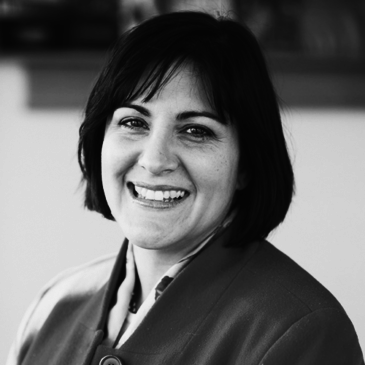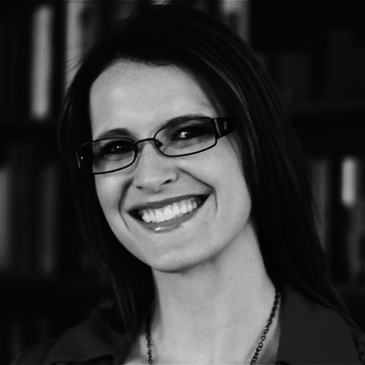I am a faculty member in the ILR School at Cornell University. My primary appointment is in human resource studies with courtesy appointments in organizational behavior and sociology. Prior to joining the Cornell faculty in 2009, I was a faculty member at the MIT Sloan School of Management. I started my academic career at the Harvard Business School teaching leadership and organizational behavior. I earned my Ph.D. in sociology at Stanford University and served as a lecturer and researcher in organizational behavior and human resources management at the Stanford Graduate School of Business.

Leadership
EssentialsCornell Certificate Program
Overview and Courses
Today’s organizational leaders are one part manager, one part HR professional. This certificate program will teach professionals new to a leadership role how to elevate into a true leader instead of simply a manager. Find out what your leadership style is and how to develop the interpersonal skills needed to take charge. Knowing that will allow you to not only staff your team effectively, but manage it to its fullest potential as well, building a high-performance group.
These seven courses, developed by faculty at Cornell University, will equip you to manage your time, make clear, decisive decisions for the betterment of your organization, and communicate those decisions to upper management.
In this course you will define and differentiate between leadership and management, develop a strategy for overcoming new leadership challenges, and evaluate motivational techniques and determine when to use them. You will also identify the skills needed to develop relationships crucial to your career development as a leader, based on the research and expertise of Professor Kate Walsh, Ph.D.
Using tools provided in this course, you will explore what motivates others, assess leadership styles, and examine communication with your leadership team. With the completion of an action plan at the end of the course, you will be ready to apply what you learn to your own organization.
In this course, you will create a strategy to turn a work group into a high-functioning team by evaluating challenges and applying techniques to generate positive team outcomes. Based on the research and expertise of Professor Kate Walsh, PhD, of Cornell University's School of Hotel Administration, you will learn how to enable a team to take ownership of its own success and shift leadership roles as the team assumes greater responsibility.
Using tools provided in this course, you will explore best practices in leading teams, assess case studies, and examine functional conflict. With the completion of an action plan at the end of the course, you will be ready to apply what you learn to your own organization.
Interpersonal communication is built on the bedrock of confidence, presence, social and emotional intelligence, and being open with others and yourself. This course will cover all of these dimensions, including how they play into your management style and your workplace actions like holding difficult conversations.
Professor Pam Stepp, Ph.D., of Cornell University's ILR School will guide you as you discover how interpersonal communication will impact your team. In the course project you will assess yourself and others on the aforementioned key dimensions. You will reflect on your past performance, analyze your strengths and weaknesses, and determine an actionable plan for future performance.
Most managers only think about performance once a year when they have to conduct annual appraisals for their direct reports, or when things are going poorly. This course equips managers to move beyond this approach and develop an ongoing and proactive
Every day is filled with new tasks, new challenges, and new distractions. Every so often you need to take a step back to audit how you are using your time and what your priorities should be. Doing so will allow you to effectively manage not only your own time and priorities, but the time and priorities of your direct reports as well.
In this course, Professors Diane Burton and Allison Elias will help you determine the needed frequency of audits, as well as how to create and conduct evaluations of yourself, your teams, and the organization. They will help you examine priorities and tasks on seven critical levels. In the course project, you will examine your work situation, and work-life balance, all with the goal and tools to become more efficient and effective.
Project Management Institute (PMI®) Continuing Certification: Participants who successfully complete this course will receive 6 Professional Development Units (PDUs) from PMI®. Please contact PMI ® for details about professional project management certification or recertification.
Instead of HR professionals, front-line managers are now being asked to assess their personnel needs in the workplace and make hiring —or firing—choices that fit those needs. Many managers have not been trained on how to decide among candidates to make the best choices to fit their team. These choices are not just about creating test questions or reading resumes, but also about managing the interpersonal communication that must occur between hirer and candidate.
Cornell University's Professor Livingston's teaching combines well-supported theoretical evidence with real-world examples and case studies to make the subject matter both understandable and easily applicable to a wide variety of managing environments. She focuses not just on the “how” of hiring and interviewing, but on the “why” so that individual managers and decision makers can be flexible and agile in changing environments and with changing needs.
Managers must foster a good workplace atmosphere and be able to deal effectively with behavior issues as they arise. Doing so improves productivity and employee engagement and helps an organization avoid costly legal liability.
Professor Alexander Colvin, Ph.D.
How It Works
Course Length
Program duration
Class Size
Effort
Format
Model
Course Length
Program duration
Class Size
Effort
Format
Model
Faculty Authors
Alexander Colvin is Associate Dean for Academic Affairs, Diversity, and Faculty Development and the Martin F. Scheinman Professor of Conflict Resolution at the ILR School, Cornell University. He is an associate member of the Cornell Law Faculty. His research and teaching focuses on employment dispute resolution, with a particular emphasis on procedures in nonunion workplaces and the impact of the legal environment on organizations. His current research projects include empirical investigations of employment arbitration and a cross-national study of labor and employment law change in the Anglo-American countries. He has published articles in journals such as Industrial & Labor Relations Review, Industrial Relations, British Journal of Industrial Relations, Personnel Psychology, Relations Industrielles, the Ohio State Journal on Dispute Resolution, and the Cornell Journal of Law & Public Policy. He is also co-author (with Harry C. Katz and Thomas A. Kochan) of the textbook An Introduction to Collective Bargaining and Industrial Relations, 4th edition (Irwin-McGraw-Hill).
Prof. Colvin received his J.D. in 1992 from the University of Toronto and his Ph.D. in 1999 from Cornell University. He received the 2003 Outstanding Young Scholar Award from the Industrial Relations Research Association (IRRA) and the 2000 Best Dissertation Award from the IRRA for his dissertation entitled “Citizens and Citadels: Dispute Resolution and the Governance of Employment Relations”. Before joining the faculty of the ILR School in 2008, he taught at Penn State University from 1999-2008.
Allison Elias is a Senior Fellow and Lecturer in Management at the Wharton School of the University of Pennsylvania. She is also a Visiting Assistant Professor at the Cornell School of Hotel Administration for the 2019-2020 academic year.
Her research investigates historical and contemporary issues of gender and diversity in organizations, with a particular focus on the ways that social movements become translated into corporate policies and practices. Her forthcoming book (Columbia University Press), at the intersection of history, gender, and management studies, charts the trajectory of modern feminism at work by tracing the changing nature of secretarial work from the 1960s to the present.
Before coming to Wharton, Dr. Elias taught at the Owen Graduate School of Management, Vanderbilt University, where she was also appointed a Fellow in the Provost’s Office for Inclusive Excellence. Previously, she was on faculty at Cornell University in the ILR School and the SC Johnson College of Business. Dr. Elias received her doctorate in History from the University of Virginia, where she worked during graduate school as a research associate at the Darden School of Business.
I am an assistant professor in Human Resource Studies, with teaching interests in HR and Staffing, and research interests in gender, stereotyping, and the management of work and family. Originally from Kentucky, I began my education at big state schools in the south before joining the faculty in ILR. The college’s appreciation of combining the world of work with social science research and practice is a perfect place to grow rewarding relationships with faculty, practitioners, and students alike.
I am married with a preschool-aged daughter, a golden retriever, and two cats. In my spare time, I enjoy CrossFit, watching basketball, reading (primarily novels of a non-academic bent), and participating in the Ithaca community.
Pamela Stepp, Ph.D. is a leadership educator and an independent executive coach within the U.S. and internationally. Presently, Leadership Assessment for Managers in the Industrial and Labor Relations School at Cornell University, and, she teaches Entrepreneurial Leadership at the Gordon Institute at Tufts University, and is an Executive Coach for international senior level managers and high potentials at London Business School. She has also served as an Executive coach at Harvard Business School, Reebok/Adidas and Nestles. During the past ten years she had leadership and business experience as the Executive Director of the Cornell Center for Advanced Human Resources (CAHRS) serving 60 Fortune 500 corporations worldwide. Much of her work was international working with business leaders in Asia, Europe, and the Middle East.
Before CAHRS she was a faculty member in the Communication Department at Cornell researching leadership, diversity, and sexual harassment. Serving as the director of the competitive speech and debate team she coached students who won state, regional and national championships. She received six teaching and coaching awards from Cornell and was awarded the Cornell Perkins Prize for Interracial Understanding and Harmony. Degrees include a Doctorate in Leadership/Org Communication and Masters of Professional Studies in Small Group/Team Communication from Cornell University, and Bachelor of Science in Speech Communication from Central Michigan University.
Dr. Kate Walsh was named the seventh dean and E.M. Statler Professor of the School of Hotel Administration on June 16, 2017. She served as interim dean and E.M. Statler Professor for one year beginning July 1, 2016, the first day of operations for the Cornell SC Johnson College of Business. A professor of management, she has been a member of the school’s faculty since 2000. Dean Walsh received her PhD from the Carroll School of Management at Boston College and her MPS degree from Cornell’s School of Hotel Administration. She holds a Bachelor of Science in accounting from Fairfield University.
Dean Walsh came to Cornell with extensive industry experience, including posts as director of training and development for Nikko Hotels International, corporate training manager for the former Bristol Hotels, and senior auditor for Loews Corporation. She is also a former New York State Certified Public Accountant.
Since the beginning of her administration, Dean Walsh has focused on revamping the Hotel School’s alumni outreach; working with the faculty to undertake a comprehensive review of the graduate and undergraduate curriculums; and reengaging with the hospitality industry, most notably through the creation of an industry immersion initiative for faculty. Already, members of the faculty have traveled to Washington, D.C., New York City, and Los Angeles to learn from corporate executives and other experts in the hotel, restaurant, real estate finance, and technology sectors.
In addition to these ongoing efforts, Dean Walsh is working in collaboration with her colleagues on the Cornell SC Johnson leadership team on growth initiatives to strengthen the school and take advantage of opportunities afforded by the establishment of the college, including the potential to develop programming in New York.

I am a faculty member in the ILR School at Cornell University. My primary appointment is in human resource studies with courtesy appointments in organizational behavior and sociology. Prior to joining the Cornell faculty in 2009, I was a faculty member at the MIT Sloan School of Management. I started my academic career at the Harvard Business School teaching leadership and organizational behavior. I earned my Ph.D. in sociology at Stanford University and served as a lecturer and researcher in organizational behavior and human resources management at the Stanford Graduate School of Business.

Alexander Colvin is Associate Dean for Academic Affairs, Diversity, and Faculty Development and the Martin F. Scheinman Professor of Conflict Resolution at the ILR School, Cornell University. He is an associate member of the Cornell Law Faculty. His research and teaching focuses on employment dispute resolution, with a particular emphasis on procedures in nonunion workplaces and the impact of the legal environment on organizations. His current research projects include empirical investigations of employment arbitration and a cross-national study of labor and employment law change in the Anglo-American countries. He has published articles in journals such as Industrial & Labor Relations Review, Industrial Relations, British Journal of Industrial Relations, Personnel Psychology, Relations Industrielles, the Ohio State Journal on Dispute Resolution, and the Cornell Journal of Law & Public Policy. He is also co-author (with Harry C. Katz and Thomas A. Kochan) of the textbook An Introduction to Collective Bargaining and Industrial Relations, 4th edition (Irwin-McGraw-Hill).
Prof. Colvin received his J.D. in 1992 from the University of Toronto and his Ph.D. in 1999 from Cornell University. He received the 2003 Outstanding Young Scholar Award from the Industrial Relations Research Association (IRRA) and the 2000 Best Dissertation Award from the IRRA for his dissertation entitled “Citizens and Citadels: Dispute Resolution and the Governance of Employment Relations”. Before joining the faculty of the ILR School in 2008, he taught at Penn State University from 1999-2008.

Allison Elias is a Senior Fellow and Lecturer in Management at the Wharton School of the University of Pennsylvania. She is also a Visiting Assistant Professor at the Cornell School of Hotel Administration for the 2019-2020 academic year.
Her research investigates historical and contemporary issues of gender and diversity in organizations, with a particular focus on the ways that social movements become translated into corporate policies and practices. Her forthcoming book (Columbia University Press), at the intersection of history, gender, and management studies, charts the trajectory of modern feminism at work by tracing the changing nature of secretarial work from the 1960s to the present.
Before coming to Wharton, Dr. Elias taught at the Owen Graduate School of Management, Vanderbilt University, where she was also appointed a Fellow in the Provost’s Office for Inclusive Excellence. Previously, she was on faculty at Cornell University in the ILR School and the SC Johnson College of Business. Dr. Elias received her doctorate in History from the University of Virginia, where she worked during graduate school as a research associate at the Darden School of Business.

I am an assistant professor in Human Resource Studies, with teaching interests in HR and Staffing, and research interests in gender, stereotyping, and the management of work and family. Originally from Kentucky, I began my education at big state schools in the south before joining the faculty in ILR. The college’s appreciation of combining the world of work with social science research and practice is a perfect place to grow rewarding relationships with faculty, practitioners, and students alike.
I am married with a preschool-aged daughter, a golden retriever, and two cats. In my spare time, I enjoy CrossFit, watching basketball, reading (primarily novels of a non-academic bent), and participating in the Ithaca community.

Pamela Stepp, Ph.D. is a leadership educator and an independent executive coach within the U.S. and internationally. Presently, Leadership Assessment for Managers in the Industrial and Labor Relations School at Cornell University, and, she teaches Entrepreneurial Leadership at the Gordon Institute at Tufts University, and is an Executive Coach for international senior level managers and high potentials at London Business School. She has also served as an Executive coach at Harvard Business School, Reebok/Adidas and Nestles. During the past ten years she had leadership and business experience as the Executive Director of the Cornell Center for Advanced Human Resources (CAHRS) serving 60 Fortune 500 corporations worldwide. Much of her work was international working with business leaders in Asia, Europe, and the Middle East.
Before CAHRS she was a faculty member in the Communication Department at Cornell researching leadership, diversity, and sexual harassment. Serving as the director of the competitive speech and debate team she coached students who won state, regional and national championships. She received six teaching and coaching awards from Cornell and was awarded the Cornell Perkins Prize for Interracial Understanding and Harmony. Degrees include a Doctorate in Leadership/Org Communication and Masters of Professional Studies in Small Group/Team Communication from Cornell University, and Bachelor of Science in Speech Communication from Central Michigan University.

Dr. Kate Walsh was named the seventh dean and E.M. Statler Professor of the School of Hotel Administration on June 16, 2017. She served as interim dean and E.M. Statler Professor for one year beginning July 1, 2016, the first day of operations for the Cornell SC Johnson College of Business. A professor of management, she has been a member of the school’s faculty since 2000. Dean Walsh received her PhD from the Carroll School of Management at Boston College and her MPS degree from Cornell’s School of Hotel Administration. She holds a Bachelor of Science in accounting from Fairfield University.
Dean Walsh came to Cornell with extensive industry experience, including posts as director of training and development for Nikko Hotels International, corporate training manager for the former Bristol Hotels, and senior auditor for Loews Corporation. She is also a former New York State Certified Public Accountant.
Since the beginning of her administration, Dean Walsh has focused on revamping the Hotel School’s alumni outreach; working with the faculty to undertake a comprehensive review of the graduate and undergraduate curriculums; and reengaging with the hospitality industry, most notably through the creation of an industry immersion initiative for faculty. Already, members of the faculty have traveled to Washington, D.C., New York City, and Los Angeles to learn from corporate executives and other experts in the hotel, restaurant, real estate finance, and technology sectors.
In addition to these ongoing efforts, Dean Walsh is working in collaboration with her colleagues on the Cornell SC Johnson leadership team on growth initiatives to strengthen the school and take advantage of opportunities afforded by the establishment of the college, including the potential to develop programming in New York.
Key Course Takeaways
- Know the difference between leadership and management and devise a strategy for overcoming new leadership challenges
- Create a strategy to create a high-functioning team
- Apply leverage points for enabling the team to take ownership for its own success and shift leadership role as the team assumes greater responsibility
- Assemble the different dimensions of interpersonal communications and apply them to difficult conversations
- Establish standards for productivity, processes, quality, conduct, and timeliness
- Set appropriate performance goals with individual employees and create an effective system of accountability
- Determine current workforce needs with an eye to future changes and skills that might be needed
- Develop a hiring plan that maximizes your likelihood of a good hire and communicate effectively with job candidates
- Create a workplace atmosphere that reduces the occurrence of behavior issues and learn how to resolve issues as they arise

Download a Brochure
Not ready to enroll but want to learn more? Download the certificate brochure to review program details.
What You'll Earn
- Leadership Essentials Certificate from Cornell ILR School
- 56 Professional Development Hours (5.6 CEUs)
- 39 Professional Development Units (PDUs) toward PMI recertification
- 36 Professional Development Credits (PDCs) toward SHRM-CP and SHRM-SCP recertification
Watch the Video
Who Should Enroll
- New managers
- Professionals looking to move into a management role
“I decided to try an online certificate program because it fit my life and provided me with an Ivy League credential. While I was a little unsure what to expect with learning online, it turned out to be the best decision I could have made. The instructors and other students were really dialed in. They always pushed you to the next level, provided unique insights, and answered your questions with real breadth and depth. ”
Request Information Now by completing the form below.

Leadership Essentials
| Select Payment Method | Cost |
|---|---|
| $3,600 | |
